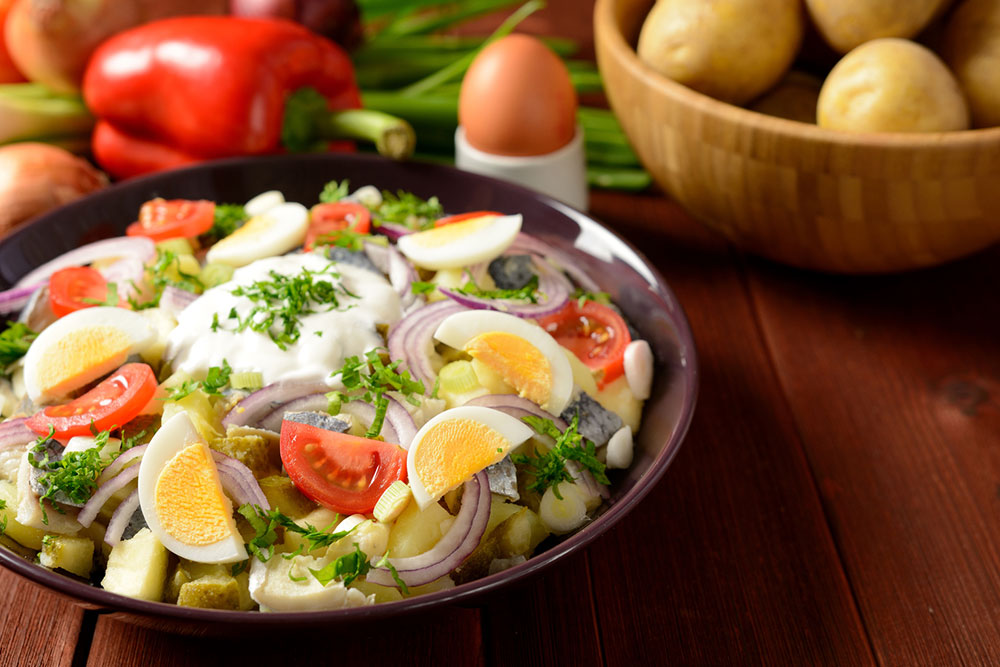Essential Diet Tips for Managing Hiatal Hernia Symptoms
Discover effective dietary strategies to manage hiatal hernia symptoms. Learn which foods to include, avoid, and how lifestyle modifications can alleviate discomfort. Embrace a tailored diet featuring lean proteins, vegetables, and fruits like berries, while avoiding spicy, fatty, and acidic foods. Proper hydration, weight control, and meal habits play vital roles in easing reflux and preventing complications. Consult your doctor about suitable medications and lifestyle adjustments to improve your quality of life with hiatal hernia.
Sponsored

Diet Guidelines for Managing Hiatal Hernia Symptoms
Irregular eating patterns often lead to digestive issues like acid reflux. This common problem arises when unhealthy food choices cause excess stomach acids that the digestive system struggles to handle. Foods high in oil, spices, and caffeine-rich drinks can increase acid production, worsening conditions such as a hiatal hernia. In this condition, the upper stomach pushes through the diaphragm into the chest, causing symptoms like acid reflux. Proper dietary management is crucial to reduce discomfort and improve quality of life.
Post-meal discomfort, especially after spicy foods, is a key indicator of hiatal hernia.
Foods to Avoid: A hiatal hernia diet emphasizes non-acidic, gentle foods. Key items to limit include:
Garlic and onions: Both raw and cooked forms are acidic and should be minimized.
Citrus fruits: Oranges, limes, and other citrus foods should be avoided until symptoms subside.
Tomato-based dishes: Items like pasta with red sauce, salsa, and marinara sauce are high in acidity.
Fried and spicy foods: Avoid burgers, fried chicken, nuggets, and salty snacks.
Drinks to steer clear of: Anything bubbly or acidic, including:
Alcoholic beverages: wine, beer, spirits
Caffeinated drinks: coffee and certain teas
Seltzer water and sodas
Full-fat, unpasteurized milk
Health experts recommend a diet low in fat, carbs, and acids to minimize symptoms. The pressure on the stomach from a hiatal hernia causes discomfort, heartburn, and swallowing difficulties, which, if unaddressed, can lead to GERD and chest pain.
To alleviate symptoms, adopting a tailored diet alongside medical treatment is essential. Focus on consuming foods that support digestion and reduce reflux. What should your diet include?
Lean proteins: Opt for chicken, fish like mackerel and cod, and avoid high-fat meats like beef.
Legumes: Beans, tofu, and soy products are excellent, non-acidic options. Avoid fried soy, and marinate mildly.
Vegetables: Leafy greens such as spinach and broccoli, along with carrots and red bell peppers, provide vital nutrients without aggravating symptoms.
Fruits: Incorporate apricots, berries, and cantaloupe, while staying away from citrus fruits.
Additional fluids like herbal teas (not too hot or cold) and ample water intake can help soothe the digestive tract. Maintaining a healthy weight is also critical, as excess weight increases abdominal pressure, worsening hernia symptoms.
Practicing small, frequent meals, chewing thoroughly, and avoiding lying down immediately after eating can further reduce discomfort. Regular exercise, especially cardio, helps manage weight and improve digestion. Consult your healthcare provider for personalized advice and medication to control acidity and support recovery.






